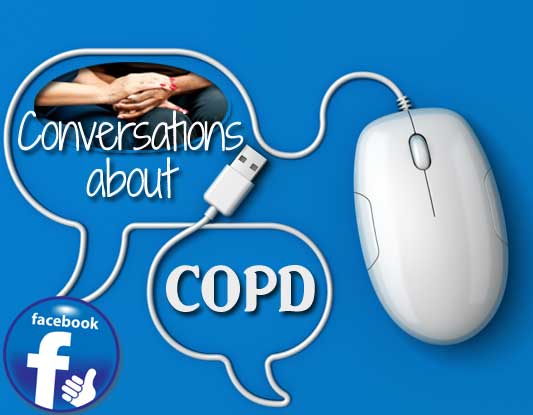Happy for No Reason – discussion

 These are my notes on a “discussion” about this book from The Philosophers Notes.
These are my notes on a “discussion” about this book from The Philosophers Notes.
The book is: ‘Happy for No Reason: 7 Steps to Being Happy from the Inside Out’ by Marci Shimoff
The theme of the book is based on this spectrum, that we are either:
- Unhappy
- Happy for Bad Reason (cocaine/alcohol/addiction/junk food, etc. – i.e. you’re happy but you’re going to come ‘down’ from that)
- Happy for Good Reason (promotion, etc. – you’re happy, but it’s still something outside of you, not from within you)
- Happy for No Reason
Happy for no reason is not a ‘peak experience’ that doesn’t last & it’s not an ’emotion’. When you are happy for no reason, you ‘bring’ happiness to your outer experiences, rather than trying to ‘extract’ happiness from them.
You don’t need to manipulate the world around you to try and make yourself happy. You live ‘from’ happiness, rather than ‘for’ happiness.
Happiness for ‘any’ reason, is just another form of misery, because it comes from something ‘outside of you’.
Tools:
- [tweetable alt=””]Stop asking “who’s to blame?”, and start asking “what can I learn about this?”[/tweetable]
Look for lessons instead.
As long as you are blaming your teacher, your parents, your spouse or ex, your friend, your “insert here”, you will never be happy.
Ask yourself: “if this were happening for a ‘higher purpose’, what would it be?”
We are not disturbed by what happens to us, we are disturbed by the ‘thought’ of what happens to us.
Choose which is a more ‘helpful’ response; choose a response that is actually going to create happiness for you, rather than one that is going to allow you to dwell upon the blame of something outside of you.
- Activate your consciousness to look for the positive and beautiful things in life.
What would we do if the stars only came out once every thousand years?
Write down just one thing per day that you can appreciate/be grateful for/be thankful for.
1 little sentence/note a day that you can write in a diary / calendar / journal / notepad, etc.
You might start your day great, notice the sun through the trees, it could be something you read, a flower, a kindness witnessed, a sound, a breeze. Just seek to find 1 thing every single day to write down.
What happens after daily practice of doing this is: ‘brain-rewiring on auto-pilot’; your brain automatically starts scanning the world, looking for positive things, looking for the good in the world, looking for things that make you happy/bring you joy.
Great long-lasting results start with small baby-steps – consistent, continuous improvement.
We’re genetically wired to remember the “Negative” events, we have to train ourselves to look for the “Positive”
We’re genetically wired to interpret and remember ‘negative’ events rather than ‘positive’ events. Thousands/Millions of years ago, we needed to remember ‘dangerous’ situations to survive. We had to remember that if we leave our cave and go right, that a lion lives over there that can kill you, we had to ‘remember’ the dangers. In order to evolve, survive and live, our ancestors had to remember to be cautious. Our consciousness is genetically wired to remember the negative things, to remember to ‘fear’. We have literally descended from those who are fearful and nervous; those who were most keenly aware of the threats in their environment were able to survive the attack & those who weren’t, died.
Our ancestors’ brains had to remember, ‘hey, there’s a lion’s den right there, and you almost died, so I’m going to make sure you never forget to be really careful – actually, just avoid that area altogether’; to avoid pain; to avoid death or injury; to avoid fear; to avoid danger. We “HAD” to remember the negative in order to survive.
The problem is that ‘we’ (in modern times) are still ‘wired’ to remember the negative, even though we no longer have the same threats. We have the same automatic response to non-life-threatening situations such as our ‘boss’: when the ‘boss’ yells at us, we have the same response as we did for the lion, so it’s not a healthy response. Our life is not in danger, we do not need to have that memory ingrained into our brains, etc.
We are wired this way in order to ‘survive’; it’s our genetic make-up.
The more conscious we can “become” about these automatic destructive behaviours, the more consciously we can “choose” a more constructive behaviour.
If we want to be happy, we need to make it the ‘practice’ of happiness, we need to teach ourselves to be happy without outside influences. If we know that our brains are automatically wired to imprint the negative, we need to be double-conscious about it so that we can choose to double-up the positive; to choose to look for and remember the positive; to make an effort to incline our minds to remember “joy”.
We need to practice/make it habit/condition our brains to see what’s positive.
What is the highest response I can choose to respond to this moment?
[tweetable alt=”Be ‘coo’ with what is.”]Being “cool” with what is.[/tweetable]
6 States of ‘happy’ emotions (according to Esther & Jerry Hicks)
- Love
- Appreciation; it’s impossible to simultaneously hold appreciation and frustration.
- Joy
- Freedom; when you have the deep experience of freedom, you realize that you aren’t a stimulus response; you have a choice, you are free to choose your response.
- Empowerment; empowered to make a choice.
- Knowing; when you’re in a state of knowing, knowing that there is something bigger than the challenge, or the ‘this has to happen’, for ‘this to happen’.
[tweetable alt=””]It’s impossible to simultaneously hold appreciation and frustration.[/tweetable]
Discussion around the book: ‘Happy for No Reason: 7 Steps to Being Happy from the Inside Out’, Shimoff, Marci, Free Press, 2009




![[Nithyananda] The Completion Process](https://old.pennybutler.com/wp-content/uploads/2017/04/completion-process-Nithyananda-777x437.jpg)